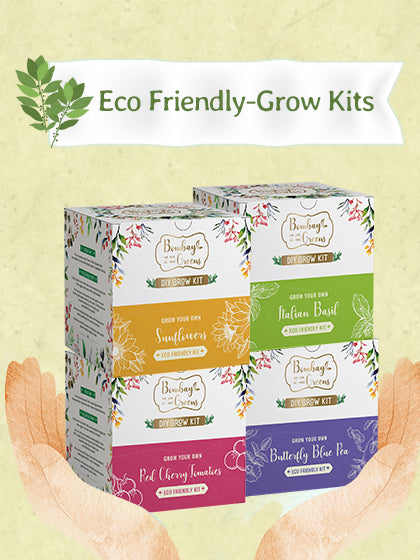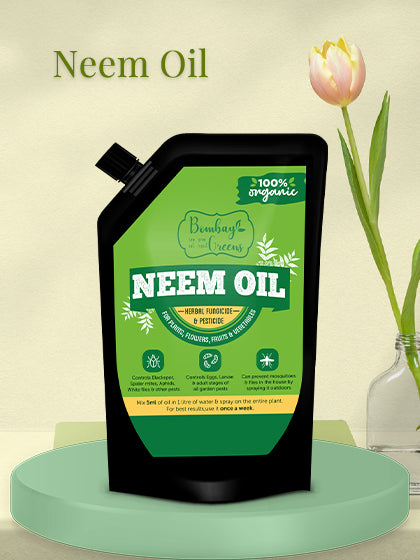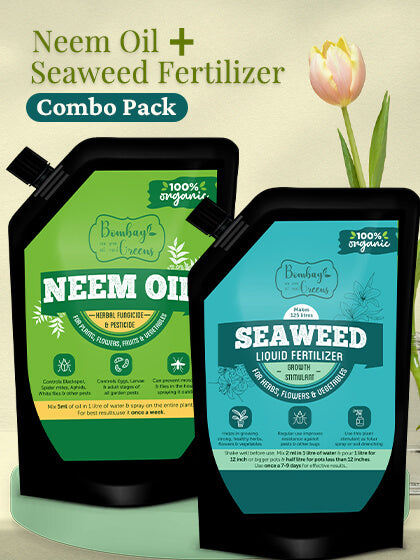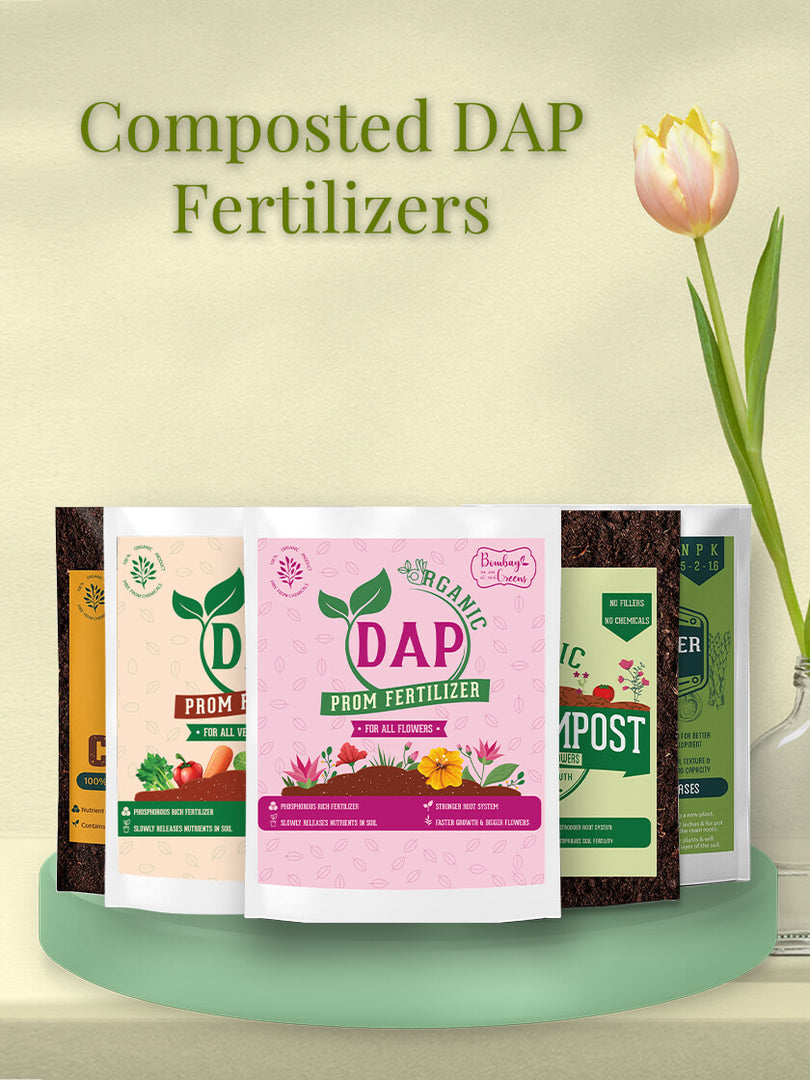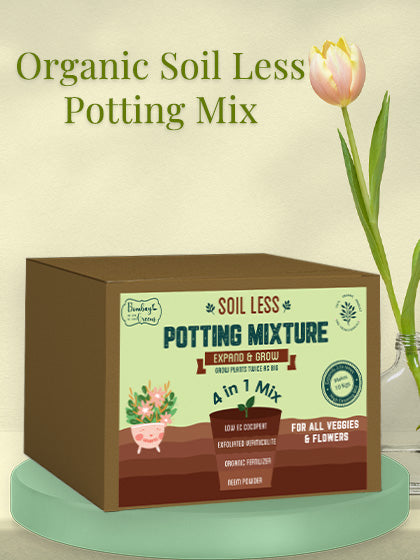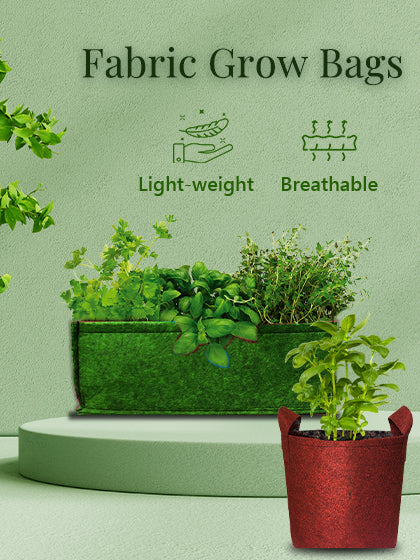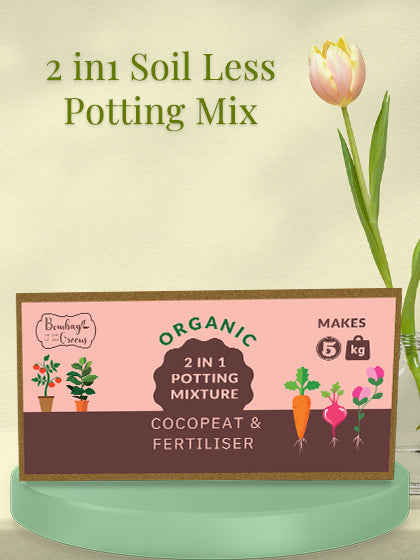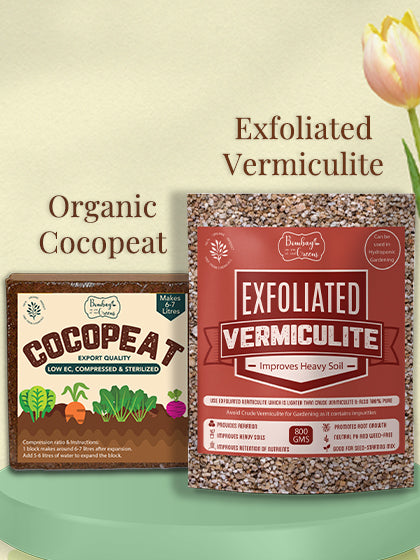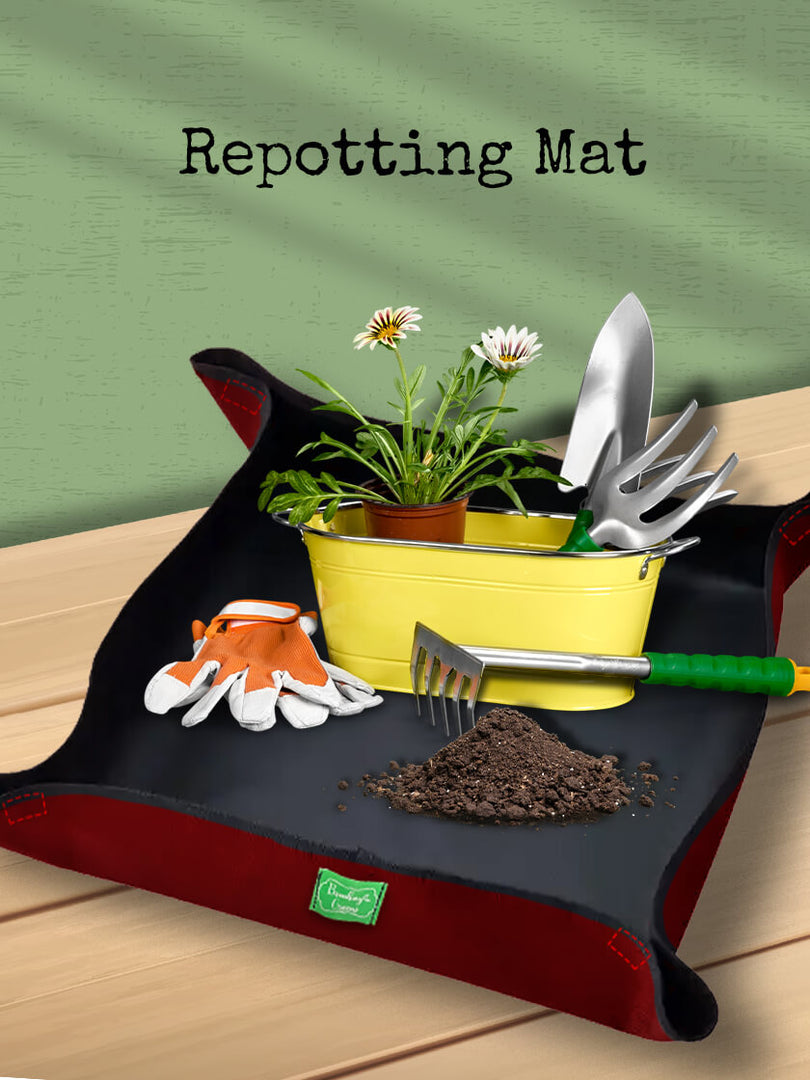
Which one to use?
We all know that while building a house, you first need to prepare the land so that it becomes capable of holding a vast building. Similarly, before sowing a seed, you first need to prep the land and soil for it to become nutrient-rich and robust enough to grow a healthy-living plant.
But what happens when we have little or no prior knowledge of gardening. We don't get the required results even after providing a sufficient amount of food to the plant. This is because we don't choose the right soil, fertilizers and manures.
What makes the soil healthy? Fertilizers and manures, but what are they and how to use them? And primarily what is the difference between fertilizers and manures?
Here is a small guide to what are fertilizers and manures are and the differences between manure and fertilizers

What are fertilizers?
A natural or chemical substance mixed with the soil or put up on the land to make plants grow better. It can be in a solid, liquid or powdered form. The fertilizers carry nutrients that can help a plant to grow in a better and healthy way. There are various uses of fertilizers and two types of fertilizers.
Natural Fertilizers are also known as Organic Fertilizersthat are obtained through various wild existing things. There are multiple examples of natural fertilizers. A few of them are:
● Vermicompost
● Rock phosphate
● Compost
● Chicken litter
● Bone meal

Chemical fertilizers are synthetically originated, and they possess a high amount of phosphorus, nitrogen, and potassium, which are essential elements for plant growth.
Few examples of chemical fertilizers are:
● Ammonium sulphate
● Ammonium phosphate
● Ammonium nitrate
● Urea
● Ammonium chloride
What are Manures?

Manures are natural soil amendments or soil additives that generally are excreta of the animals. The decomposed form of dead plants and animals is also manure and it has its advantages. They increase the production of the soil. They work very well in improving soil
fertility. The different types of manures are:
1.) Animal manure
● Cattle dung
● Excreta or animal droppings
2.) Green manure
● Plants waste
● Domestic waste from food
Types of Manure and Fertilizers
There are different types of manure based on the biological waste material used and they are listed below.
- Green Manure is made from the seeds sown which are then cultivated to get green manure crops that are fast-growing such as Horse gram, Sunhemp, Cowpea, and Guar. After this, the fast-growing crop is replanted where it enriches the soil with phosphorus, nitrogen, and organic matter, at the same time, it protects the soil from leaching and erosion.
- Compost is a mixture of organic matter that is decomposed which is obtained from sewage, vegetable waste, garbage, and other sources. Composting is a process that breaks down the mixture into pits.
- Farmyard Manure (FYM) comes from farms and it is a degraded mixture of cattle urine and dung, as well as organic residues like feed or roughage, and litter. The cattle waste products are collected daily and dumped in a pit where microorganisms such as fungi, bacteria, etc. decompose it. Phosphorus, Nitrogen, and potassium are present in FYM.
- Vermicomposting is a process that decomposes organic waste through earthworm ingestion. Drawida Willsi and Dichogaster Bolani are earthworms that are utilized for vermicomposting.
There are also different types of fertilizers and the nutrients available in them with some common examples:
- Nitrogenous Fertilizer is an organic and mineral substance used to provide plants with nitrogen nutrition. They are divided into green fertilizers (such as serradella, and lupine), manufactured mineral fertilizers, and organic fertilizers (such as manure, peat, and compost) that contain other nutrients.
- Potassic Fertilizer is a chemical fertilizer that contains an absorbed form of potassium that is water-soluble and readily available to plants like Potassium Nitrate and Potassium Chloride.
- Phosphatic Fertilizer is produced by reacting bone or rock phosphates with phosphoric or sulphuric acid in such concentrations and amounts that will yield solid products such as Dicalcium phosphate and Single superphosphate.
- Complex Fertilizers contain two or more primary plant nutrients where two of them are combined chemically. This type of fertilizer is usually produced in the form of granules such as Ammonium phosphate, Diammonium phosphate, and Nitrophosphate.
Fertilizers v/s Manure Differences - Quick Comparison
|
Aspect |
Manure |
Fertilizers |
|
Source |
Manure is organically made from plants and animal wastes |
Fertilizers can be chemically made or be derived from natural sources |
|
Nutrient Content |
Manure contains different amounts of varied nutrients including Nitrogen, Potassium, & Calcium. |
Fertilizers contains a certain kind of nutrient like Nitrogen, Phosphorus, or Potassium along with micronutrients as well |
|
Release Rate |
Manure releases nutrients slowly and gradually into the soil |
Gives a quick boost of nutrients to the plants |
|
Soil Structure |
Helps improve the structure of the soil and it’s water retention capacity |
Doesn’t alter the soil structure in any manner |
|
Microbial activity |
Improves the microbial activity in the soil |
Doesn’t have any effect on the microbial activity |
|
Ph Level |
Generally helps neutralise the PH Leavel of the soil |
It depends on the specific kind of fertilizer used |
|
Environmental Impact |
Generally doesn’t harm the environment in any manner but can sometimes contain metal and pathogens |
If chemical fertilisers are used, they may cause groundwater contamination |
|
Cost |
Can be made at home and is generally cheaper when sourced locally |
Is slightly more expensive than manure |
|
Application |
Can be mixed directly in the soil |
Needs careful application as overuse can damage the plants |
|
Risks |
Very low risk of issues like a plant burn |
If given dosage is more than recommended then there are chances of issues like a plant burn |
Which one is better-Manure or Fertilizer?
Selecting one as the best between manure and fertilizer will be partial as both fertilizers and manures are important and work differently in their sections.
Organic Fertilizers are better at providing nutrients to the plant; because they carry a complete list of nutrients like Nitrogen, Phosphorous, Potassium, Amino Acids, etc.
However incorrect use of fertilizers can sometimes affect the microorganisms present in the soil.
Hence one should opt for Organic Fertilizers in a combination of Slow release and Liquid fertilizers as both are essential for healthy growth of plants.
On the other hand, since Manures are naturally obtained, their nutrients depend on the animals and they may not contain the required nutrients in proper quantity.

Manures work slowly but provide nutrients, enrich soil fertility and increase good microbes’ activity in the soil.
Hence Manures should be used as a Soil Amendment and not solely as a fertilizer. They should be a part of the potting soil mix so that they provide slow and steady release of nutrients to the plants.
The ideal way to use Fertilizers and Manure is as follows:
Manures should be mixed with your potting soil while transplanting your plant in a pot or a container.
Fertilizers should be used as a top up every few days depending on the usage mentioned on the pack. Ideal way to fertilize any plant is a mix of Organic Slow Release Fertilizer and Organic Liquid Fertilizer
One can follow the below Fertilizer Regime for a Month:
1st week - Top up the soil with a slow release fertilizer which will feed the plant continuously.
2nd week - Use a liquid fertilizer which will provide instant nutrition.
3rd week - Top up the soil with a slow release fertilizer which will feed the plant continuously.
4th week - Use a liquid fertilizer which will provide instant nutrition.
FAQs
How is manure different from fertilizers?
Manure is organically made from animal plant waste, containing a mix of nutrients and micronutrients. It releases nutrients slowly into the soil which improves soil structure and microbial activity in it. On the other hand, fertilizers are made of synthetic or natural compounds and contains concentrated nutrients which provides a quick nutrient release but may not improve the soil health like manure.
Why is manure considered over fertilizer?
Manure has an organic nature and enhances soil health while supporting the microbial activity. It also reduces the risk of groundwater contamination and is cheaper.
Which chemical is used in fertilizers?
Fertilizers normally have chemicals like ammonium nitrate, urea, and potassium chloride, which provides nutrients like nitrogen, phosphorus, and potassium to plants.
What is the difference between manure fertilizer and biofertilizer?
Manure fertilizer is derived from organic matter like animal waste, while biofertilizers consist of living microorganisms that enhance nutrient availability to plants. Manure improves soil structure, while biofertilizers focus on nutrient enhancement through biological processes.

Tanvi Agarwal - Co-founder
Driven by a deep-seated love for nature and a keen entrepreneurial spirit, she co-founded Bombay Greens, transforming urban spaces into thriving green havens. Recognizing the need for accessible and sustainable gardening solutions in the bustling city, she poured her passion into building a brand that empowers individuals to cultivate their own green spaces, regardless of their location or experience. Her vision extends beyond simply selling gardening items; it's about fostering a community connected to nature, one balcony, rooftop, and windowsill at a time.
Back to top


